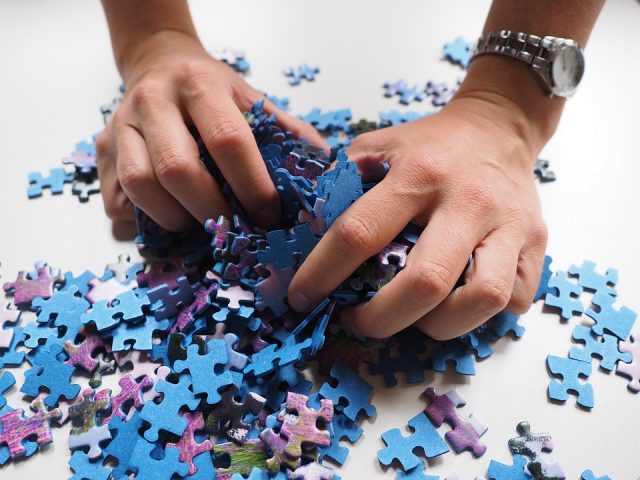Source: Dumb Little Man

For a long time now, philosophers have questioned and developed physiological and psychological quests that demand determination, patience, and logic to work out. Such mental activities were particularly widespread in most of the historical civilizations, making our primitive types of puzzles.
The most common of these early forms of puzzles was the maze which was an actual life-size maze.The jigsaw puzzle closely followed the maze and was effectively applied in teaching world geography in the 18th-century. After which came the word puzzles which were used by 20th-century newspapers to entertain readers. Over time, more puzzles have been developed and expanded to the varied forms of fun puzzles available today.
For a long time now, researchers have continually made efforts geared towards the determination of the benefits of fun puzzles to solve, especially to the human mind. It has resulted in a majority of the scientists concurring on the fact that puzzles significantly enhance the human intellectual process.
However, the benefits of puzzles rely on various factors which include, including the capacity of psychological endurance, the degree of commitment to solving puzzles, and whether an individual does or does not opt for the more demanding puzzles. Furthermore, scientists have discovered that solving puzzles on a daily basis, more often than not, results in the best possible benefits.
Although puzzles offer more than psychological benefits, almost all the other benefits, such as the subsequent increase in work productivity, are consequently due to one or a combination of several of the mental benefits.
The main advantages of puzzles include:
Enhanced memory
Working out puzzles reinforces the existing connections between our brain cells and boosts the generation of new ones. Those effects greatly enhance our mental speed and thought process.
It is also a verified fact that puzzles are beneficial for every age, seeing that the young possess highly malleable minds while adults and seniors are more vulnerable to recollection difficulties. Jigsaw puzzles are particularly…
The post The 5 Benefits of Puzzles Solving for Adult appeared first on FeedBox.